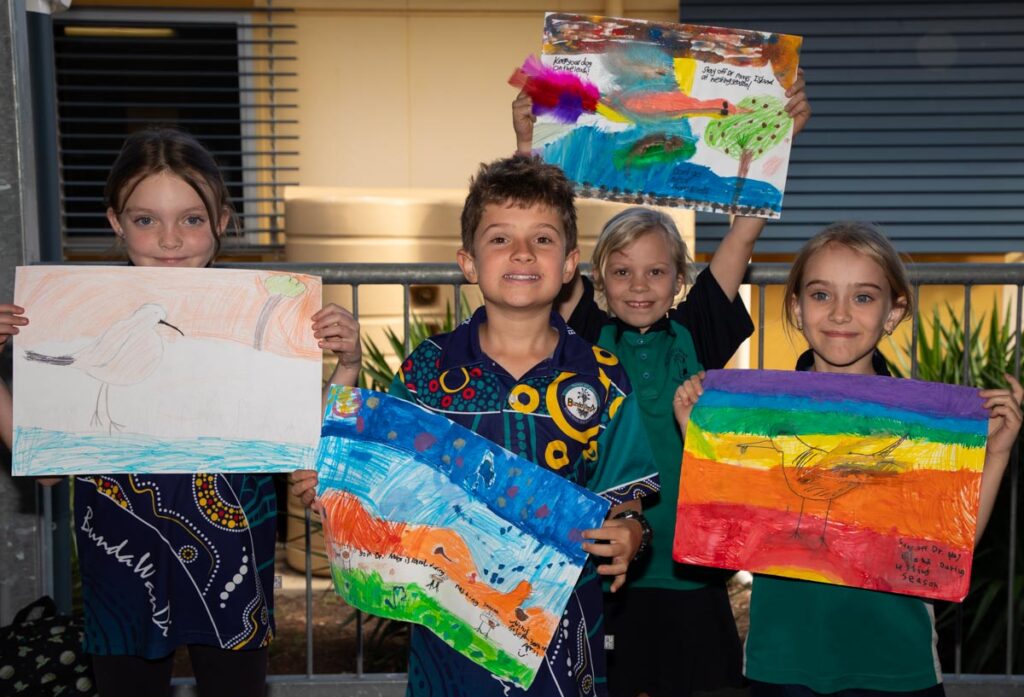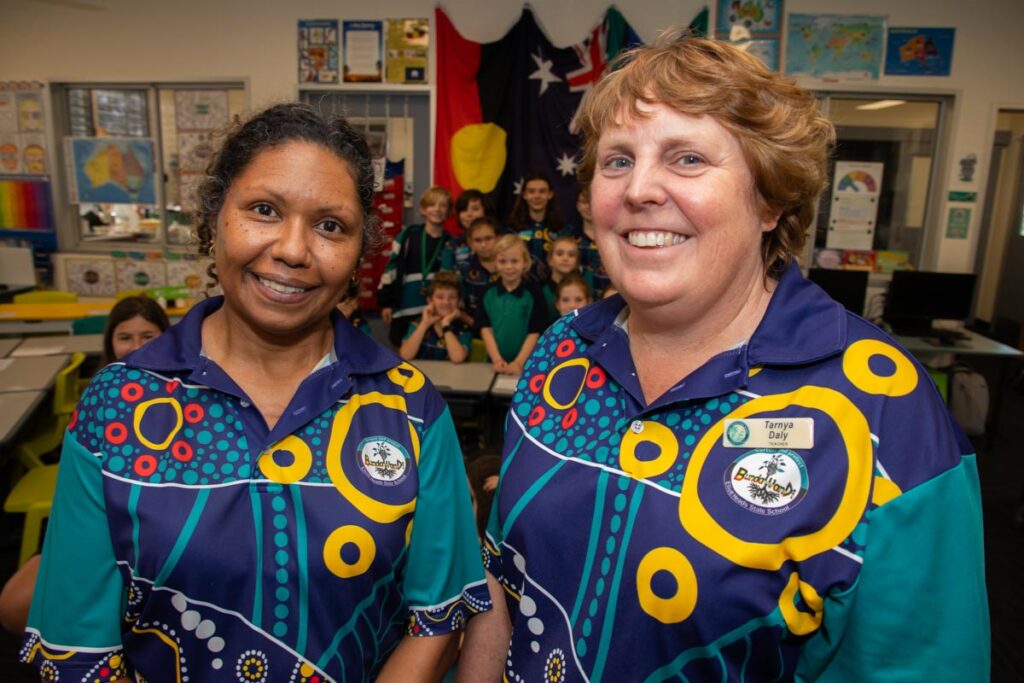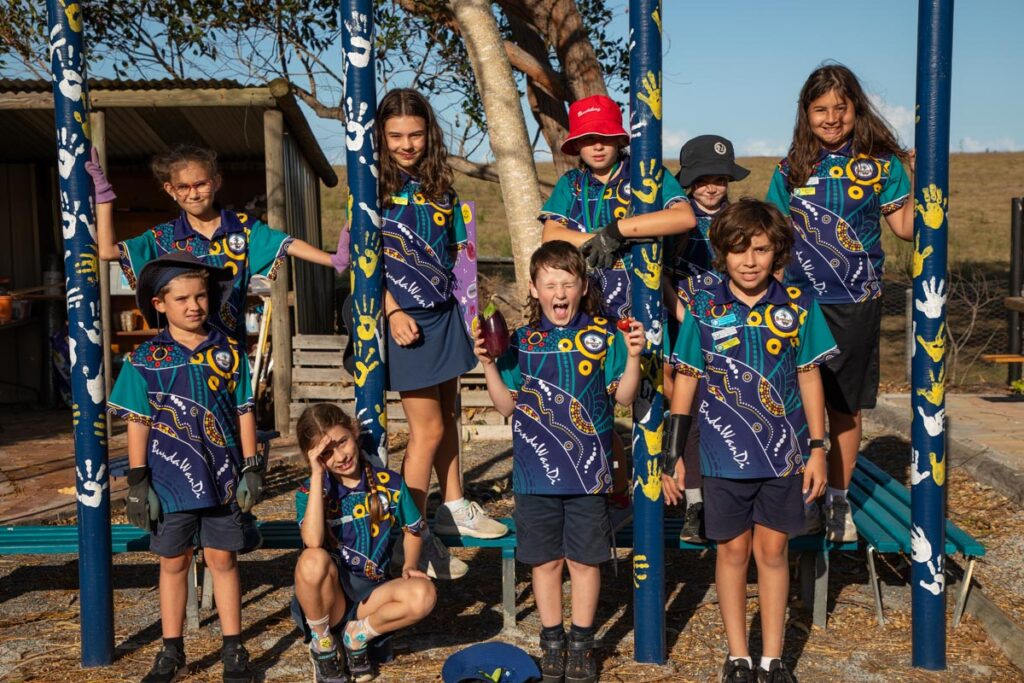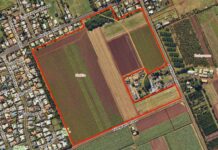
The next generation of nature lovers is embracing shorebird protection with enthusiasm at Elliott Heads State School’s BundaWanDi Rangers Club.
To protect the roosting shorebirds which travel extraordinary distances each year to rest on the region’s coastline, Dr Mays Island at the mouth of the Elliott River is closed to the public from 1 September to 30 April each year.
The club, made up of 25 students from grades one to six meets regularly to learn about Indigenous culture, the reef and the environment and to tend the school’s garden.
Elliott Heads State School Year three teacher Tanya Daly runs the BundiWanDi Rangers Club and said the students became interested in shorebird protection after attending a Bundaberg Regional Council dune care program earlier in the year.
“Since we had … Council come and speak to the children about the shorebirds landing at Dr Mays Island, we have taken on board how we can help the community know about it,” Tanya said.
“A lot of the children frequent the Elliott Heads beach and know about Dr Mays Island so we just wanted to make them aware as well that it is a protected area and why we need to protect the area with the shorebirds.”
The students made artworks about shorebird protection for the school’s Science Together stall to celebrate 20 years of the Reef Guardian School program.
Year six students Koda and Kayden are the BundaWanDi Ranger captains and said they liked learning about culture and the environment through their participation in the club.
“We’ve learnt that there are many, many species of shorebirds and that they are very important to us and the ecosystem around our water and our waterways down here at Elliott Heads,” Koda said.
Kayden hopes to become a marine biologist when he is older and put together an informative presentation on shorebirds for the club.
“I like going down to the beach and observing wildlife, there’s a lot of beautiful things you can see out in the ocean now or near it,” he said.
“My favourite is the red-tailed godwit.”

The Bundaberg Region is visited by 42 species of migratory shorebirds between 1 September and 30 April annually and is home to a further 18 species of shorebirds that live year-round and breed during the summer.
Migratory birds fly extraordinary distances from their breeding grounds and often arrive on our shores in poor condition.
Seasonal closure of Dr Mays Island
Both migratory and resident shorebirds on the region’s coast are vulnerable to disturbance and predation, especially during breeding when the eggs and chicks are camouflaged among beach debris.
Dr Mays Island, located in the mouth of the Elliott River, is a declared shorebird roosting and feeding area that is closed to the public from 1 September to 30 April each year.
Due to changes in the tidal flow, Dr Mays Island is no longer cut off by water at high tide, placing the resting shorebirds are greater risk of disturbance from humans and animals.
Visitors to the beach are not permitted to enter the restricted area during the closure period and are required to keep dogs on a leash to prevent them straying into the restricted area.
Signs are placed in various points around the area to inform visitors of the closure.
Residents can learn more about Dr Mays Island and how to protect shorebirds here.
The next community dune care event will be at Elliott Heads on Saturday 9 September from 8am to 10am, meeting in the park near Elliott Heads Hall.
Participation is free with no registration required.
Divisional representative Councillor Tanya McLoughlin said it was fantastic to see the community do its part to help protect the shorebirds of the Bundaberg Region whether it be local school children raising awareness or residents volunteering for the dune care event.
“It is great that the students are getting involved, particularly at a young age,” Cr McLoughlin said.
Shorebird research
Among the visiting species is the critically endangered eastern curlew, which was the subject of recent University of Queensland (UQ) research into the effect of drones on shorebird populations.
UQ School of the Environment PhD candidate Joshua Wilson found that the eastern curlew was easily startled by drones flying overhead even as high as 120 metres above.
“This then had a domino effect on nearby species, which would also become startled and fly away in response to the eastern curlew’s reaction,” he said.
The researchers cautioned that if birds are regularly interrupted during the breeding and feeding season, they find it difficult to obtain the strength they need to survive.









I’m thrilled to be on a news platform